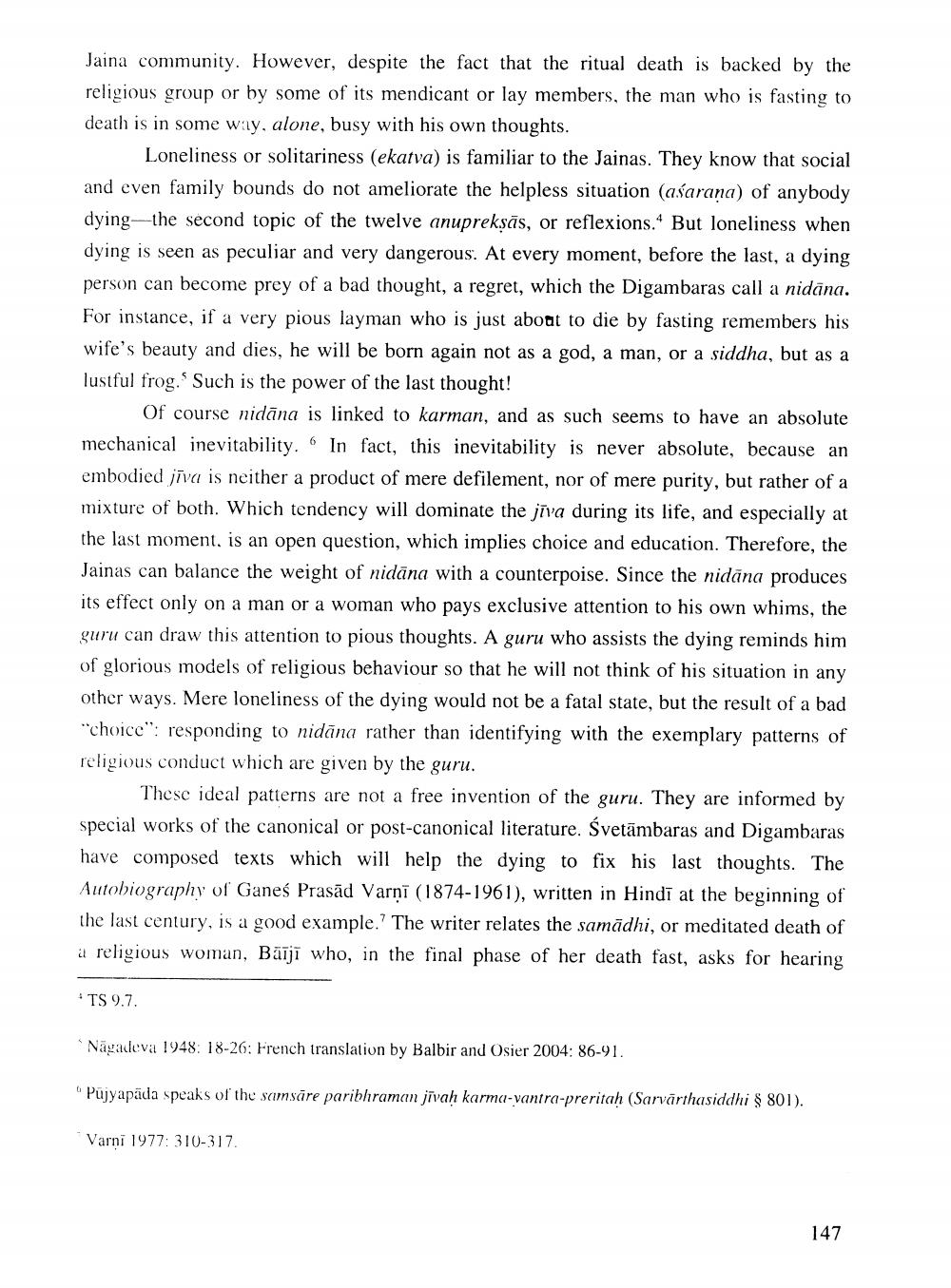________________
Jaina community. However, despite the fact that the ritual death is backed by the religious group or by some of its mendicant or lay members, the man who is fasting to death is in some way, alone, busy with his own thoughts.
Loneliness or solitariness (ekatva) is familiar to the Jainas. They know that social and even family bounds do not ameliorate the helpless situation (asarana) of anybody dying--the second topic of the twelve anuprekṣās, or reflexions. But loneliness when dying is seen as peculiar and very dangerous. At every moment, before the last, a dying person can become prey of a bad thought, a regret, which the Digambaras call a nidāna. For instance, if a very pious layman who is just aboat to die by fasting remembers his wife's beauty and dies, he will be born again not as a god, a man, or a siddha, but as a lustful frog. Such is the power of the last thought!
Of course nidāna is linked to karman, and as such seems to have an absolute mechanical inevitability. In fact, this inevitability is never absolute, because an embodied jīva is neither a product of mere defilement, nor of mere purity, but rather of a mixture of both. Which tendency will dominate the jīva during its life, and especially at the last moment, is an open question, which implies choice and education. Therefore, the Jainas can balance the weight of nidāna with a counterpoise. Since the nidāna produces its effect only on a man or a woman who pays exclusive attention to his own whims, the guru can draw this attention to pious thoughts. A guru who assists the dying reminds him of glorious models of religious behaviour so that he will not think of his situation in any other ways. Mere loneliness of the dying would not be a fatal state, but the result of a bad "choice": responding to nidāna rather than identifying with the exemplary patterns of religious conduct which are given by the guru.
Thesc ideal patterns are not a free invention of the guru. They are informed by special works of the canonical or post-canonical literature. Svetāmbaras and Digambaras have composed texts which will help the dying to fix his last thoughts. The Autobiography of Ganes Prasād Varni (1874-1961), written in Hindi at the beginning of the last century, is a good example. The writer relates the samādhi, or meditated death of a religious woman, Bäiji who, in the final phase of her death fast, asks for hearing
* TS 9.7.
Nāgadeva 1948: 18-26: French translation by Balbir and Osier 2004: 86-91.
Pujyapāda speaks of the samsāre paribhraman jīvaḥ karma-vantra-preritah (Sarvārthasiddhi $ 801).
Varni 1977: 310-317.
147




